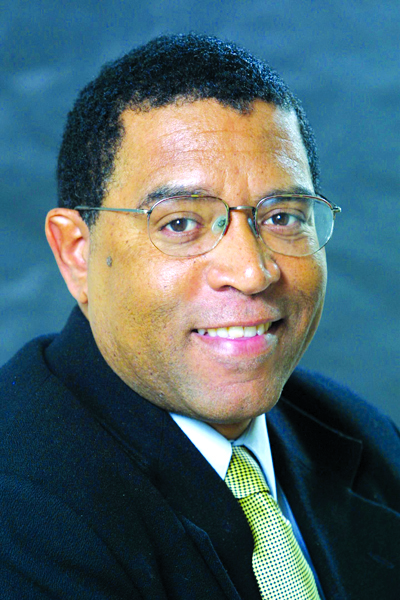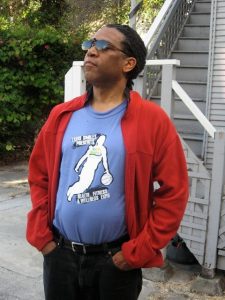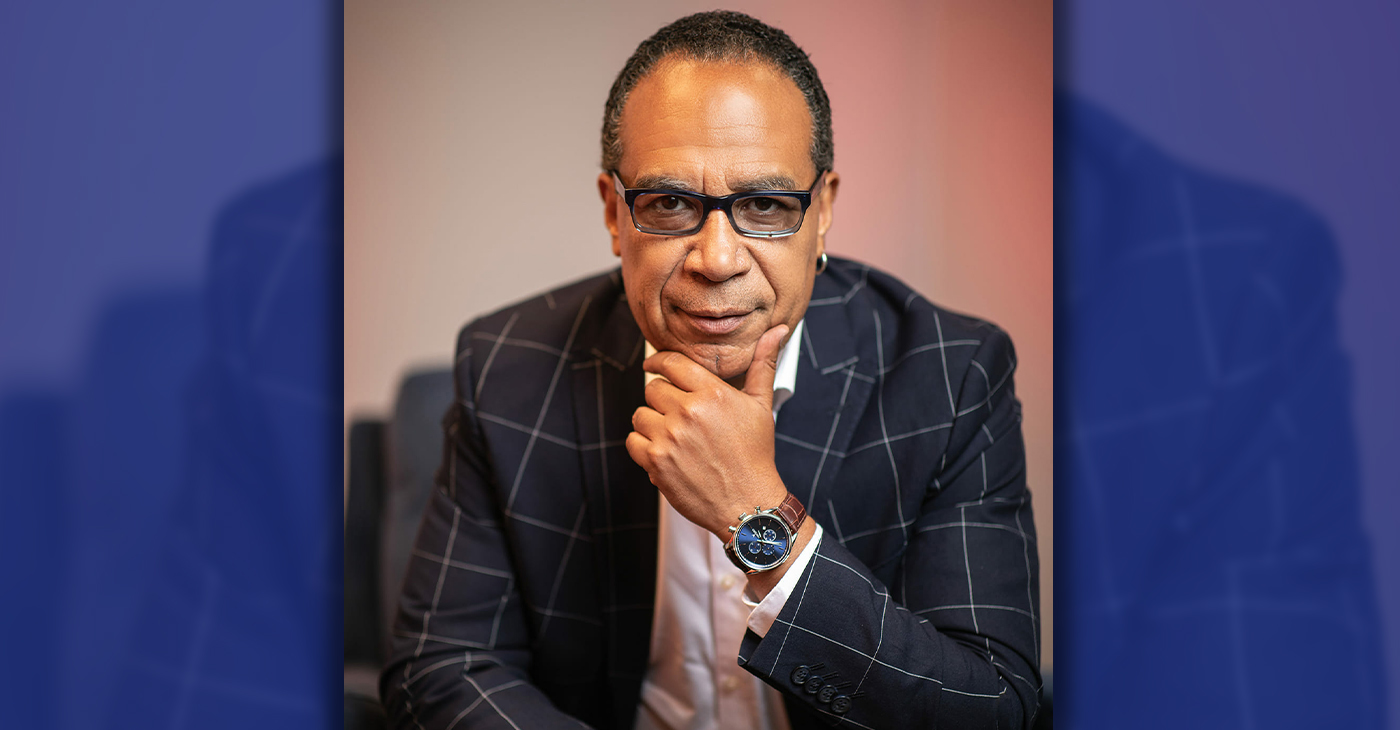Oakland
Remembering Post Editor Chauncey Bailey

Chauncey Bailey, the editor-in-chief of the Oakland Post, was shot down and murdered early in the morning on Aug. 2, 2007 in front of a child care center at 14th and Alice Streets in downtown Oakland. Some of those involved with the killing are now in prison.

Photo by Amaranth Modacure
Bailey was shot while walking to work from his apartment near Lake Merritt. He was scheduled to meet with Post Publisher Paul Cobb to discuss Bailey’s series of articles on the Oakland Police Department after the head of the Oakland Police Officers Association had called to tell him to stop investigating officers’ overtime pay and the report of their conduct towards youth.
“Even though the city and the Post staff lost its courageous editor over an article we never published, we have since remained steadfastly committed to his unabashedly straightforward investigative style while calling for more transparency in government. His reputation and accomplishments have inspired many to pursue journalism at the Post/El Mundo and elsewhere,” said Cobb.
Activism
2024 in Review: 7 Questions for Equality California Political Director Shay Franco-Clausen
Shay Franco-Clausen is an award-winning public advocate, speaker, political strategist and former elected official. She has contributed her thought leadership to drafting seventeen pieces of legislation in California. Notable among these accomplishments is her role in extending the statute of limitations for felony domestic violence survivors, advocating for the rights of foster youth, preserving endangered open spaces, and championing the restoration of voting rights for individuals on parole.

By Edward Henderson, California Black Media
Shay Franco-Clausen is Political Director for Equality California, the nation’s largest statewide LGBTQ+ civil rights organization.
Franco-Clausen is an award-winning public advocate, speaker, political strategist and former elected official. She has contributed her thought leadership to drafting seventeen pieces of legislation in California. Notable among these accomplishments is her role in extending the statute of limitations for felony domestic violence survivors, advocating for the rights of foster youth, preserving endangered open spaces, and championing the restoration of voting rights for individuals on parole.
California Black Media (CBM) spoke with Franco-Clausen about her successes, frustrations and future plans heading into 2025.
Looking back at 2024, what stands out to you as your most important achievement and why?
In the role that I sit in as the political director for Equality California, we endorsed 216 candidates. I think the one achievement after this election that I’m proud of is that we overturned Prop 8 to protect same-sex marriages here because they’re about to attack our rights on the federal level, come 2025.
I’m glad at least we changed our California constitution to reflect and protect my marriage.
How did your leadership and investments contribute to improving the lives of Black Californians?
I contribute through my lived experience. I may have achieved a lot, but I come from those same communities that are marginalized, East Oakland, East San Jose, Watts. It gives me a different perspective. I am a formerly incarcerated youth who was in foster care. I think I contribute that bit of understanding, and I operate from an equity lens. I’m willing to push people to make them recognize that hey, you cannot forget about Black people. We are the most marginalized.
What frustrated you the most over the last year?
What frustrates me is our inability to recognize that we forget people. I was tapped to work on the Harris campaign from Equality California. And through that, being at that table, I was frustrated that they weren’t listening to Americans and not looking at the data.
The reason Trump won is because he had consistent messaging, and we didn’t debunk it. I think I’m more frustrated that we don’t fully listen to people all the time when they’re critiquing us.
What inspired you the most over the last year?
All those people that came out to support Kamala Harris. I was proud that my son voted for the first time for a Black woman for President.
What is one lesson you learned in 2024 that will inform your decision-making next year?
Be fearless. Sometimes I second-guess myself. I push back, but I could push more because I’m qualified. I have the education, I have the experience, and I know what I’m talking about in all the rooms that I go in. And I must be confident in that.
In one word, what is the biggest challenge Black Californians face?
Prioritization.
We’re still not seen as a priority, but everyone likes to add us to their talking points.
What is the goal you want to achieve most in 2025?
Writing a book. I think it’s important for us to tell our stories.
I am also kicking off my campaign for Hayward City Council.
Activism
2024 in Review: 7 Questions for California Black Chamber of Commerce CEO Jay King
Jay King is also a member of the popular 1980s R&B group Club Nouveau. In his role as an artist and activist, he has stood up for issues affecting underrepresented Californians for over three decades. As the President of the CBCC, King says he is determined to put his mark on developing and expanding the capacity of African American businessmen and women.

By Edward Henderson, California Black Media
Grammy Award-winning singer and record label executive, Jay King, was elected CEO/President of the California Black Chamber of Commerce (CBCC) in June of 2019.
The CBCC is the largest African American non-profit business organization, representing thousands of small and emerging businesses, affiliates, and chambers of commerce throughout California.
King is also a member of the popular 1980s R&B group Club Nouveau. In his role as an artist and activist, he has stood up for issues affecting underrepresented Californians for over three decades.
As the President of the CBCC, King says he is determined to put his mark on developing and expanding the capacity of African American businessmen and women.
California Black Media (CBM) spoke with King recently. He reflected on the Chamber’s accomplishments, disappointments, lessons learned this year, and goals moving forward.
Looking back at 2024, what stands out as your most important achievement and why?
Making the voices of micro and mini-micro businesses loud, forcing policymakers and other decision makers across the state to pay attention to them. With legislation in place now — AB 1574 and AB 2019 – that mandates that the state and agencies affiliated with the state extend opportunities to micro and mini business owners and give them a chance to participate in government contracting in a real way.
How did your leadership and investments contribute to improving the lives of Black Californians?
I really want to contribute to the world and the state of Black businesses because of the systemic inequities in the past.
Small business, micro businesses and mini businesses are too often overlooked.
I think it would be egotistical to believe that I make any significant impact on my own. Whether it’s the Asian Chamber, Hispanic Chamber and other organizations that are fighting the same fight. I think it’s a collective, so I’m proud to be part of the collective.
What frustrated you the most over the last year?
We say we want to give access to capital to small businesses, yet we continue to create barriers that deny them access.
What inspired you the most over the last year?
Watching some of the small business owners that we worked with — these micro businesses — and seeing the potential and the power that is in front of us.
What is one lesson you learned in 2024 that will inform your decision-making next year?
We have to fight for Black business owners, but they also have to be prepared; because if they’re not, it affects us all down the line.
In one word, what is the biggest challenge Black Californians face?
Self-belief. I think we have been conditioned on victimization and victimhood. We think that if we don’t get the help we need that we will falter.
What is the goal you want to achieve most in 2025?
I want to change the trajectory of micro and mini business owners.
Activism
In 1974, Then-Gov. Jimmy Carter Visited the Home of Oakland Black Black Political Activist Virtual Murrell While Running for President
civil rights icon Georgia State Representative Julian Bond said that Carter, along with governors Reuben Askew of Florida, Dale Bumpers of Arkansas, and Terry Sanford of North Carolina, were all a part of what was being dubbed the “New South” and so supported civil rights and voting rights for African Americans.

By Virtual T. Murrell
Special to The Post
On his way to seeking the presidency, then-Gov. Jimmy Carter visited the Bay Area in his capacity as campaign chairman of the Democratic National Committee in March of 1974.
A friend of mine, Bill Lynch, a Democrat from San Francisco, had been asked to host Carter, who was then relatively unknown. Seeking my advice on the matter, I immediately called my friend, civil rights icon Georgia State Representative Julian Bond, for his opinion.
Bond said that Carter, along with governors Reuben Askew of Florida, Dale Bumpers of Arkansas, and Terry Sanford of North Carolina, were all a part of what was being dubbed the “New South” and so supported civil rights and voting rights for African Americans.
Based on Julian’s comments, I agreed to host the governor. We picked him up at the San Francisco Airport. With his toothy smile, I could tell almost right away that he was like no other politician I had ever met. On his arrival, there was a message telling him to go to the VIP room, where he met then-Secretary of State Jerry Brown.
After leaving the airport, we went to a reception in his honor at the home of Paul “Red” Fay, who had served as the acting secretary of the Navy under President John Kennedy. (Carter, it turned out, had been himself a 1946 graduate of the U.S. Naval Academy and served as a submariner in the 1950s.)
The following afternoon, the Niagara Movement Democratic Club hosted a reception for Carter, which was a major success. Carter indicated that he would be considering running for president and hoped for our support if he did so.
As the event was winding down, I witnessed the most amazing moment: Carter’s wife, Rosalynn, was in the kitchen with my former wife, Irene, wearing an apron and busting suds! You would have to have been there to see it: The first and last time a white woman cleaned up my kitchen.
A few months later, President Richard Nixon resigned amid the Watergate scandal. He was succeeded by his vice president, Gerald Ford.
On the heels of that scandal, Jimmy Carter’s election in 1976 represented integrity and honesty at a point in America’s history when he was just what the nation needed to lead as president of the United States.
-

 Activism2 weeks ago
Activism2 weeks agoBooks for Ghana
-

 Activism4 weeks ago
Activism4 weeks agoPost News Group to Host Second Town Hall on Racism, Hate Crimes
-

 Arts and Culture3 weeks ago
Arts and Culture3 weeks agoPromise Marks Performs Songs of Etta James in One-Woman Show, “A Sunday Kind of Love” at the Black Repertory Theater in Berkeley
-

 Activism4 weeks ago
Activism4 weeks agoButler, Lee Celebrate Passage of Bill to Honor Congresswoman Shirley Chisholm with Congressional Gold Medal
-

 Activism3 weeks ago
Activism3 weeks ago‘Donald Trump Is Not a God:’ Rep. Bennie Thompson Blasts Trump’s Call to Jail Him
-

 Activism4 weeks ago
Activism4 weeks agoDelta Sigma Theta Alumnae Chapters Host World AIDS Day Event
-

 Business4 weeks ago
Business4 weeks agoLandlords Are Using AI to Raise Rents — And California Cities Are Leading the Pushback
-

 Bay Area2 weeks ago
Bay Area2 weeks agoGlydways Breaking Ground on 14-Acre Demonstration Facility at Hilltop Mall












































